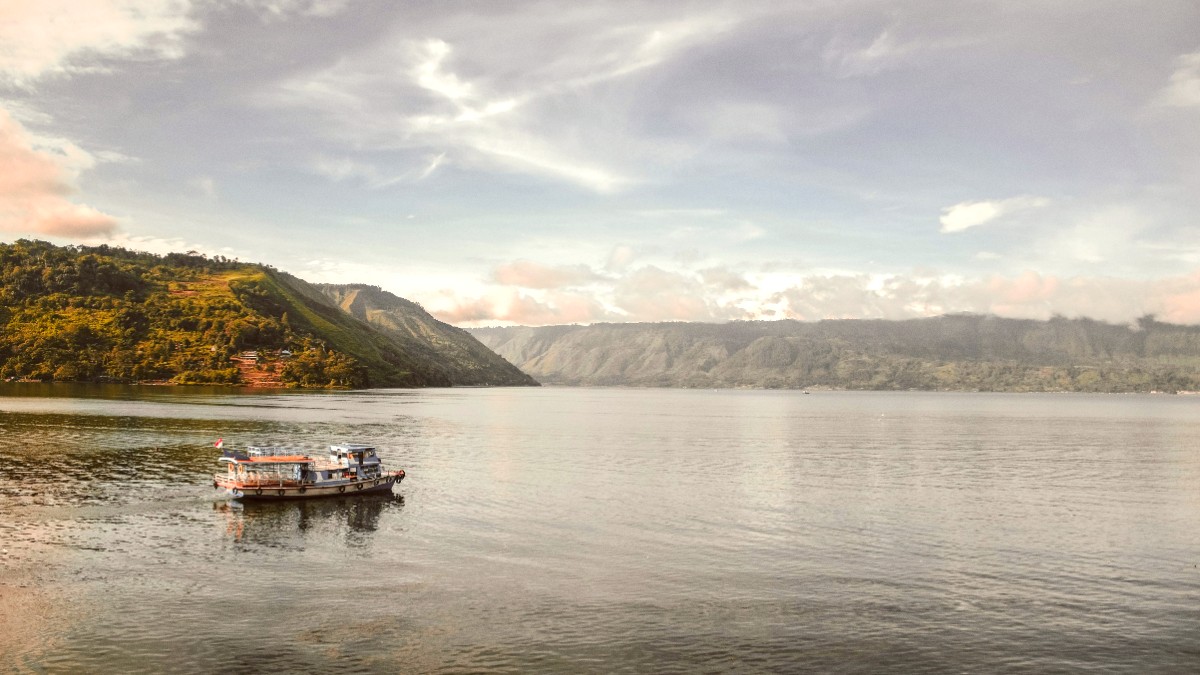
Sumatra, Indonesia
Explore the diverse landscapes through various physical activities.
Flat strolls around Tuk Tuk or short walks through villages like Tomok or Ambarita.
Cycling or scootering the Samosir ring road (approx. 100 km) with some hilly sections. Trails to smaller waterfalls.
Trekking Mount Pusuk Buhit, the sacred mountain. A local guide is often recommended.
This trek is challenging and usually requires a local guide due to the terrain and spiritual significance of the mountain. Plan accordingly for a safe experience.
Engage with the rich Batak culture through various immersive experiences.
Daily performances at Museum Batak Simanindo. These provide dynamic and immersive cultural displays.
If you are in the region during a traditional ceremony, respectfully observing from a distance can be a profound cultural experience.
Check local calendars for Batak festivals, often linked to harvest cycles, ancestral rituals, or Christian holidays.
Guesthouses and local guides facilitate visits to smaller, traditional villages for authentic cultural exchange, supporting local livelihoods.
Local traditional healers (dukun) may exist in remote villages. Approach with caution and respect, understanding practices before participating.
These experiences build a connection with the Batak people and their living heritage.
Lake Toba is a place for peace and rejuvenation, offering natural springs and serene environments.
Natural sulfurous hot springs near Pangururan on Samosir Island.
Popular for soaking, believed to benefit skin and muscles. Warm, mineral-rich waters.
Few dedicated retreats. Guesthouses might offer sessions or quiet spaces for personal practice.
Some guesthouses and hotels in Tuk Tuk have swimming pools for guest use.
Lake Toba itself serves as a natural swimming spot, offering fresh, cool water for relaxation.
Many guesthouses in Tuk Tuk provide direct access to the lake, some with private piers.
Lake Toba's nightlife is relaxed, centered on local music and casual gatherings.
Limited to traditional dance performances at the Batak Museum in Simanindo. No formal theaters or large venues.
Nightlife revolves around relaxed bars at guesthouses or small, independent bars in Tuk Tuk. The main strip has a cluster of these.
Generally, establishments close by 10 PM or 11 PM. Some guesthouse bars may stay open later, especially in peak season.
Lake Toba's nightlife is more about laid-back social gatherings than high-energy clubs.
Opportunities to engage with locals and other travelers in a casual setting.
Enjoy evening views of the lake under the stars from a guesthouse terrace or lakeside bar.
Exercise general caution, especially when walking at night on less-lit roads. Arrange transport if venturing far from your lodging.
Discover local crafts, textiles, and produce at Lake Toba's markets and shops.
Look for small workshops producing traditional Batak wood carvings, ulos weaving, and other handicrafts. Find these in villages like Jangga or smaller streets in Tuk Tuk.
Confirm handicrafts are genuinely local and not mass-produced imports. Ask about the origin. Purchasing directly from artisans supports their craft.
Not available in Lake Toba. Shopping focuses on local crafts, necessities, and general Indonesian goods.
Plan a scooter ride around Samosir Island to visit various villages and their local markets. This broadens your experience and product selection.